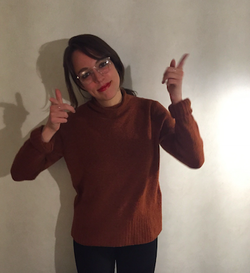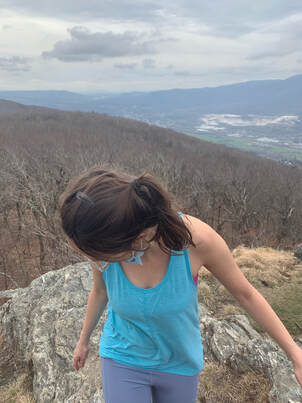
Hi, I'm Becca. I am the non-fiction book critic of the Washington Post, an editor at The Point, and a contributing editor at The Boston Review . My essay collection, All Things Are Too Small, was published Metropolitan Books in the US and Virago in the UK in April 2024. The New York Times called it "splendidly immodest" and "exhilarating" and The Guardian called it "bracing and brilliant." It was a New York Times editors' pick and a New Yorker weekly recommendation. Finally, I am also a PhD candidate (on indefinite hiatus) in philosophy at Harvard, but i remain perhaps delusionally convinced that someday I will finish my dissertation. These days I live in Washington, DC, with this person, whom I love. Here you can find all of my Washington Post pieces, which will come out each week, generally speaking.
To keep up with my writing/rantings, subscribe to my substack here. As a writer: I have contributed essays, book reviews, and the occasional art review to publications like The TLS, The Nation, The New York Times Book Review, The New Yorker, The Atlantic, Liberties, Bookforum, Art in America, The Yale Review, The Baffler, and more. These days, I write mostly for the Washington Post about non-fiction, but occasionally I write essays on fiction and whatever else for other venues. I am the winner of the first annual Robert B. Silvers Prize for Literary Criticism (see more here) and the 2023 Nona Balakian Citation for Excellence in Reviewing (see more here). In 2017, I was a finalist for a National Magazine Award in the essays/criticism category. A few authors I especially love are Joseph Roth, Italo Svevo, Henry James, Henry Green, Heinrich von Kleist, Marie de France, and Norman Rush. My agent is Anna Sproul-Latimer of Neon Literary. As a (lapsed?) philosopher: I am primarily interested in aesthetics (especially aesthetic value and its relationship to other types of value), the philosophy of love and sex, and the history of German philosophy, especially Martin Heidegger, although I have increasingly consuming secondary interests in political philosophy. In "The Good, the Bad, and the Ugly," published in The British Journal of Aesthetics, I defend aestheticism, the view that aesthetic value is sometimes a partial grounds of moral value. I describe aestheticism in more detail in a chapter in the Oxford Handbook of Ethics and Art. If I ever get around to completing it, my dissertation will be about some combination of the following: what it is to be a beautiful person, why evolutionary psychologists are wrong about human beauty, the ethics of exclusionary romantic/sexual/aesthetic preferences, and what role the state should play in ameliorating inequitable distributions of intimate "goods." I hold a first-class MPhil in the history and philosophy of science from the University of Cambridge and a B.A., summa cum laude with high honors, from Dartmouth College, where I studied philosophy & German (and cultivated an enduring distaste for fraternities). I receive many emails asking for advice about graduate school applications. I have answered some frequently asked questions on this page. As I note there, I do not consider myself an expert in how to write a successful graduate school application, and I urge all prospective grad students to consult resources online, as well as supervisors who have served on admissions committees, rather than me! Before the pandemic, I followed Hegel in regarding nature as geistlos, but now, like any good Heideggerian, I am a big fan of hiking. Here I am in the Berkshires, which I love
|
|
In The Use of Man (1976), the second instalment of Serbo-Croatian novelist Aleksandar Tišma’s Novi Sad trilogy, a schoolboy stares at the books in his Jewish neighbour’s library on the eve of World War II ‘as if they contained the clues to salvation, as if they could rescue one from being beaten, cursed, spat upon, killed’. The books, it turns out, can do no such thing: the neighbour is murdered by the Nazis, while his daughter, Vera, is forcibly sterilized and put to work in a concentration camp brothel. Are words just so much dust in times as dire as these?
Tišma does not think so. For his characters, language is no mere luxury: it is, in its own way, as indispensable as food and shelter, for it is only language that can render a private pain public. After the war, Vera yearns to confide in someone, but her memories remain ‘stuck inside her, silent, like resin’. When she is asked to write out her biography on a communist questionnaire, she finds herself trying ‘to put the unutterable on paper’. In the end, she crosses out, ‘in thick ink, every word she had written’. She annihilates first her family, then herself: ‘Father’s name: nothing. Mother’s name, maiden name: nothing. Day, month, year of birth: nothing. She was nothing’. Now, she is ‘a prisoner of those blank sheets of paper, as she had been a prisoner in the camp’. She has been exiled from intelligibility, thereby from human community. Read more here.
0 Comments
Leave a Reply. |
Archives
June 2022
Categories |

 RSS Feed
RSS Feed